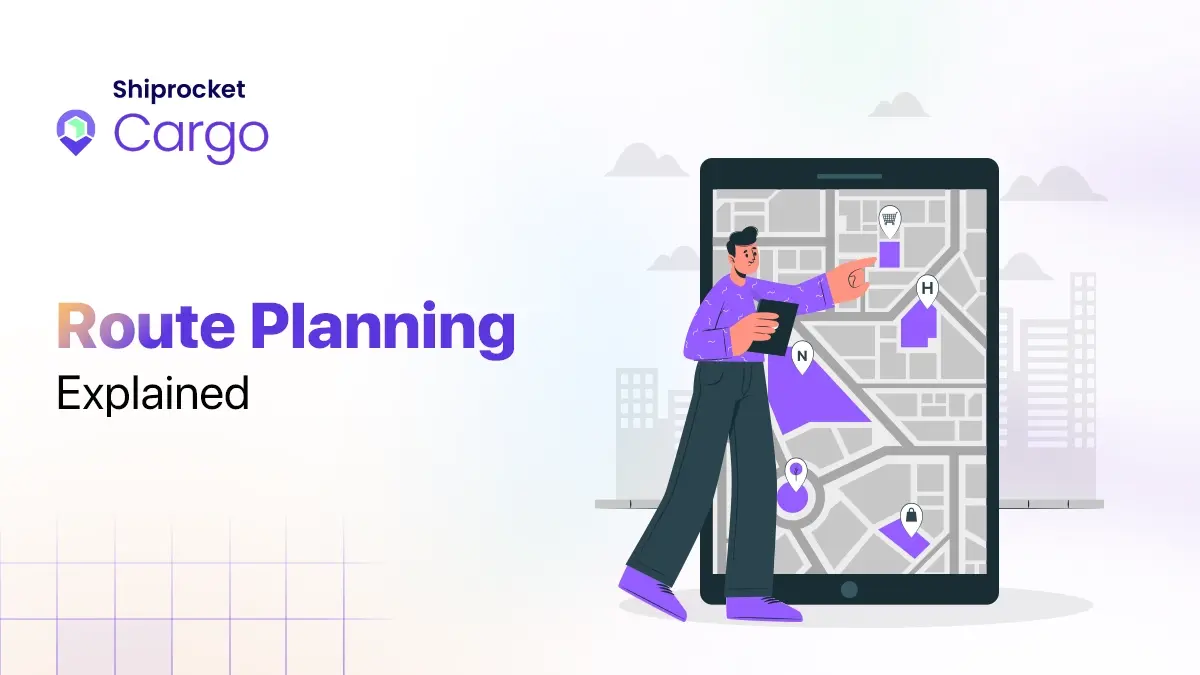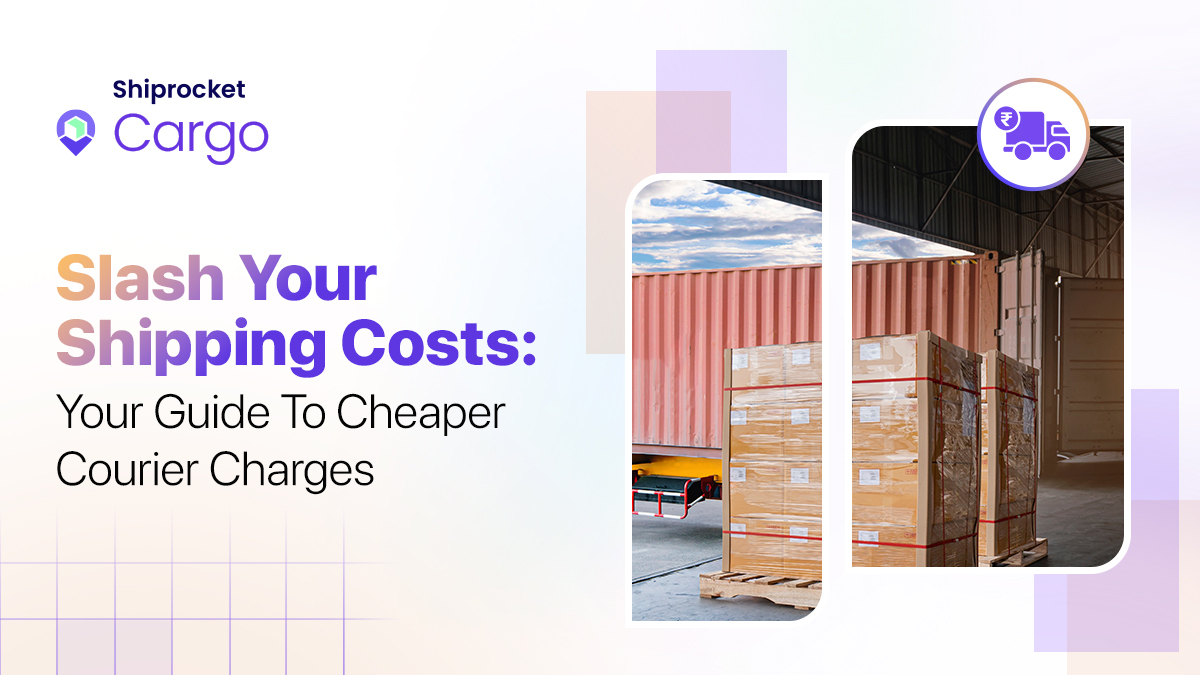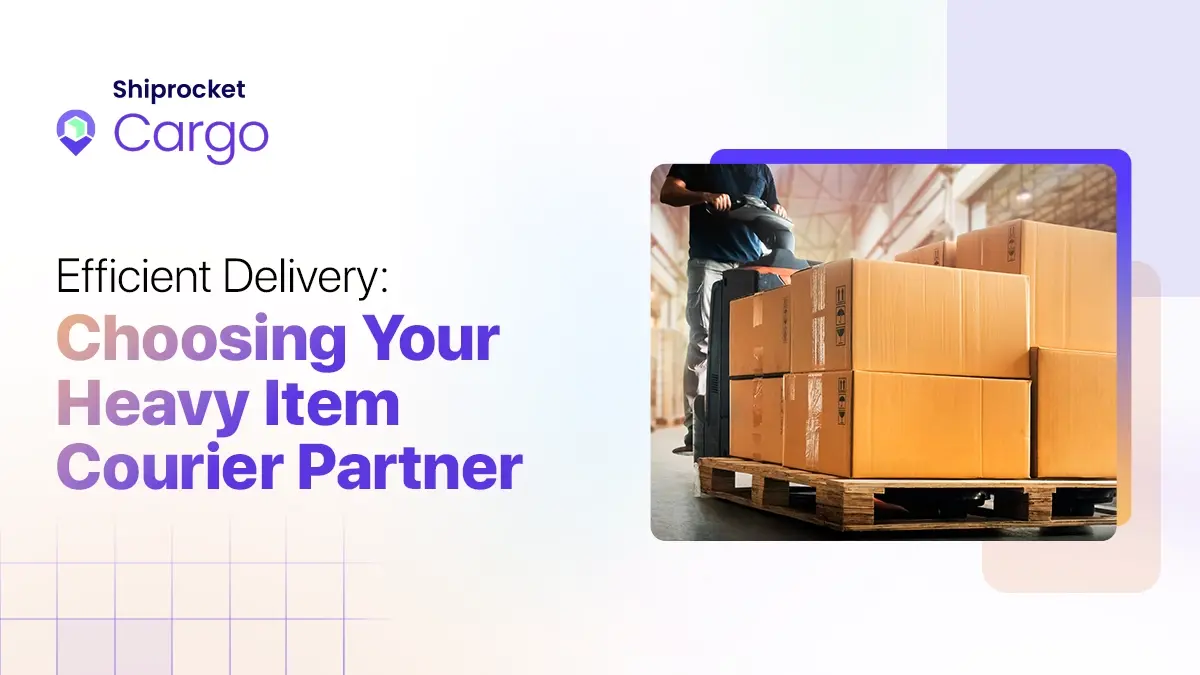What Is Cargo Delivery?

The Indian eCommerce market has witnessed substantial growth in recent years. This is due to the factors such as the rising trend of online shopping amongst the country’s general population, increasing internet penetration, and the skyrocketing number of D2C companies in India. Moreover, post the COVID-19 outbreak, getting orders delivered to the doorstep has become a standard expectation.
According to a Shiprocket CII report, the Indian eCommerce market is expected to grow from $70 billion in 2022 to $214 billion by the end of 2027. This implies that the market has tremendous potential, and businesses have massive opportunities to explore.
However, one such sector that has significantly helped the eCommerce industry to flourish truly is cargo delivery. But what is cargo delivery, how is it different from conventional deliveries, and how does it work? Let’s find out.
Cargo Delivery: Definition
Cargo delivery refers to products and goods being delivered from one location to another via land, air, or water. Typically, “cargo” refers to goods loaded on board a vehicle. Today, however, the term is used for all types of products, including rail, truck, vans, or intermodal containers.
Although the word cargo implies all the goods on board a transport vehicle, it does not include personnel bags, equipment, or products required to support the commutation of the products in the vehicle. Cargo delivery is for commercial purposes for which the carrier issues an E-Way bill and proof of delivery.
Cargo Delivery vs Shipment Delivery: Difference
Generally, the terms cargo delivery and freight forwarding are used interchangeably; however, these terms are slightly different. Let’s have a look at the differences between the two:
Definition
Cargo delivery is typically done by plane, train, or ship. However, this type of delivery does not include money or payment that is being charged by the carrier. The shipment is generally transported by trucks or vans, and the carrier sets the cost.
Volume
The volume of goods is a major difference between cargo delivery and shipment delivery. Generally, the volume of goods to be transported in cargo delivery is quite large. In comparison, shipment delivery involves the transportation of goods in smaller quantities.
Cost of Transportation
The transportation cost is another factor that distinguishes cargo delivery from shipment deliveries. Typically, a cargo delivery costs higher than a shipment delivery because of the mode of transportation used, the distance a cargo needs to be transported, and the tax involved in shipping cargo from one place to another.
Delivery Time
The cargo delivery generally takes longer to reach the destination than shipment delivery. This is because cargo is usually transported to a longer distance than shipment delivery.
Why Choose Cargo Delivery for Your Business?
Choosing cargo delivery for a business has several benefits; let’s look at some of them below:
Easy Transportation of Large Quantities
Cargo delivery is most suited for shipping large quantities over large distances. This allows businesses to streamline their logistics and supply chain as they can send more goods in fewer trips. Moreover, cargo deliveries provide better security for the goods as they are often packaged and loaded in containers that are often sealed until they reach their destination.
Flexibility of Transportation
Cargo delivery offers greater flexibility in terms of transportation modes. Depending upon the need of the business, cargo can be delivered through land, air, and sea routes. This helps companies to reduce delivery costs and time as they can choose the most efficient mode of transportation.
Real-Time Tracking
Most cargo delivery service providers, such as Shiprocket Cargo, offer clients real-time cargo tracking and monitoring tools. This allows the client to know the exact status and location of the cargo. As a result, the client can arrange to unload and store the cargo properly.
Overall, cargo delivery can provide numerous benefits for businesses of all sizes. By choosing the right cargo delivery service and mode of transportation, you can optimize your logistics and supply chain, reduce costs, and ensure the safe and timely delivery of your goods.
Conclusion
Cargo delivery can benefit businesses looking to ship their products to a larger distance and in larger volume. Though the shipping cost in cargo delivery is a bit higher, the flexibility of choosing the desired mode of transport, the size of the cargo, and real-time tracking mitigate the overall expenses for the business.



